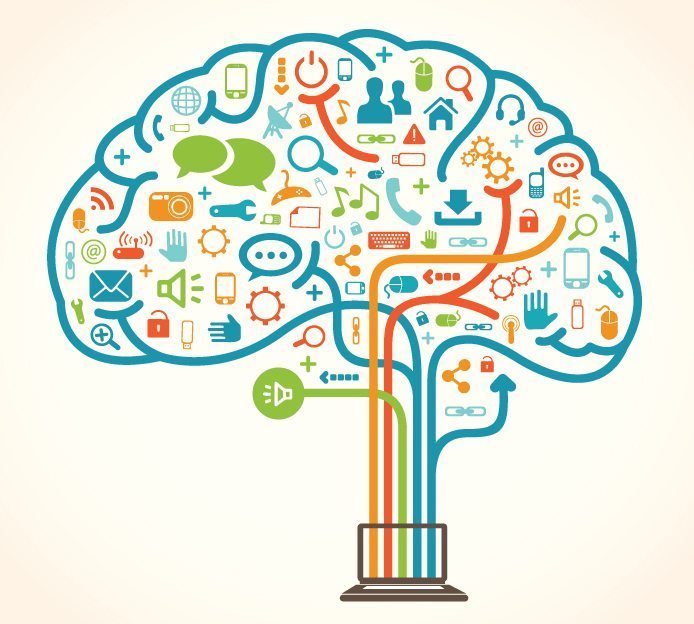Variety is the spice of life. Or at least, a person with more varied experiences is better prepared to solve a wide array of problems. This is just one aspect of what our brains, our social networks, and digital databases have in common.
Emily Falk, Ph.D., Associate Professor of Communication, Psychology, and Marketing at the University of Pennsylvania’s Annenberg School for Communication and director of UP’s Communication Neuroscience Lab, and her team conducted a study of the brain’s response to social exclusion via fMRI. In particular, the researchers looked at the mentalizing system or the different regions of the brain that help us consider the views of others.
People with loose-knit social networks show the greatest brain mentalizing connectivity changes during social exclusion.Click To TweetThe study found that people with the greatest mentalizing connectivity changes during social exclusion tend to have loose-knit social networks (one where a person’s friends tend not to be friends with that person’s other friends). In contrast, those with tight-knit social networks showed the least change in mentalizing connectivity when subjected to social exclusion.
“The significance of what we found is that people who are surrounded by different types of social networks use their brains differently,” said Dr. Falk.

The Study of the Brain and Social Networks
In the study, to simulate social exclusion, Dr. Falk and her team used a virtual ball-tossing game called Cyberball to observe the reactions of 80 16-17 year-old boys. While in the fMRI, each subject was shown a screen with two other player characters supposedly controlled by real people. All three characters began by tossing the ball to one another.
After the beginning period where all characters are included, the game shifts to exclusion mode, and the subject under the fMRI machine is not tossed the ball by the other two characters on the screen.
Noting that social rank is particularly important to adolescents, the study’s lead author, Dr. Ralf Schmälzle of Michigan State University, said, “It’s surprising how strong the effect is on participants. They have to think through, ‘What is going on? Did I do something wrong?’ Although Cyberball may sound like an artificial task, it is actually quite involving for people. That makes it a good task to study the brain effects of social exclusion in a controlled but powerful way.”
Researchers were able to look at the activity of different brain regions that make up the mentalizing system. Where past neuroimaging studies of exclusion were looking for activity levels, this study was concerned with the relationship between mentalizing region activity over time.
Using the test subjects’ Facebook data, those in sparse friend networks showed the greatest brain connectivity when exposed to social exclusion.

The Implications
Basically, social networks are like databases for our brains.
The more databases we have access to, the more information upon which we have in order to more creatively attack a problem and consider its complexities from multiple perspectives.
Like the fictional, superorganism artificial intelligence Geth from the Mass Effect video game series, who, in this context, each Geth unit would symbolize a mentalizing region of the brain, the more perspectives the brain has to work with when solving problems the more likely it is to find efficient solutions.
This is why beginning to organize the data that we have collected over the last few years will be paramount to innovation within an Internet of Things. This is also why collaboration is important: to help pool and organize as much data as possible into actionable insights and strategies as quickly as possible.



















Comments (0)
Least Recent